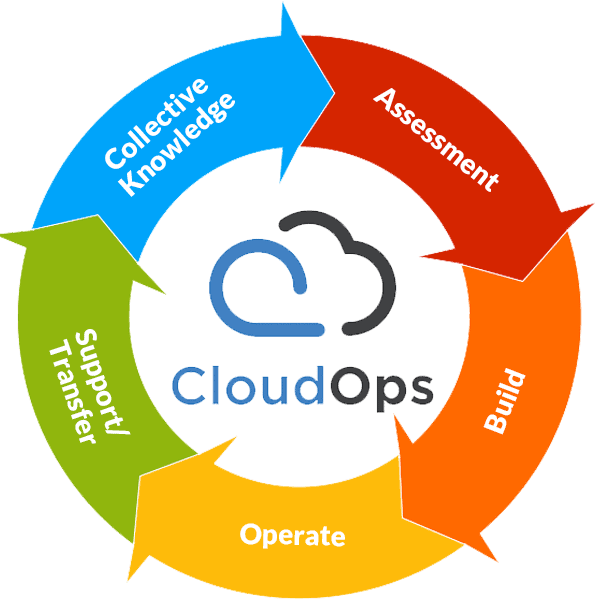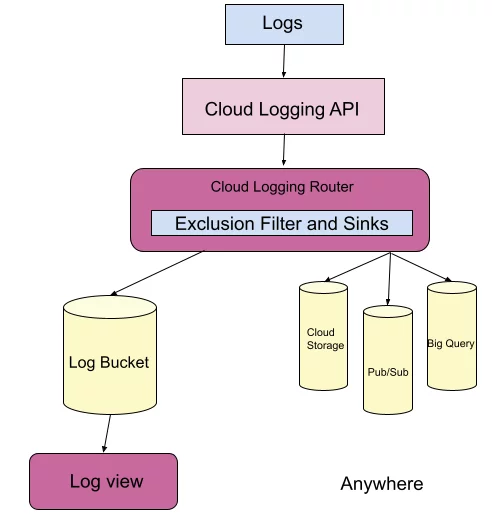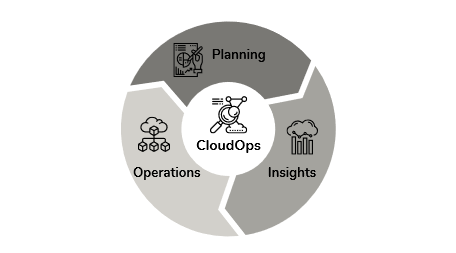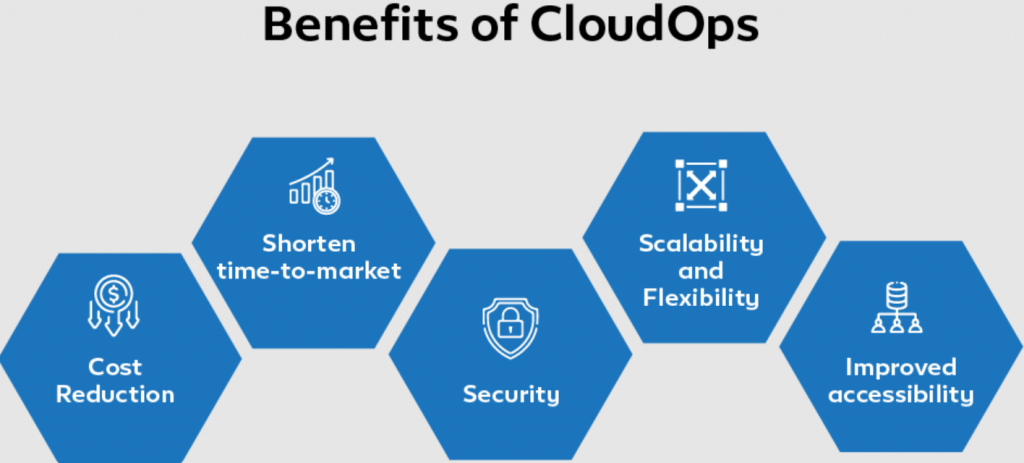
Hi Everyone,
Today, we will discuss about the CloudOps certification and best practices of CloudOps.
Lets begin.
Introduction
Welcome to our comprehensive tutorial on CloudOps – your gateway to understanding the importance of Cloud Operations, implementing best practices, and choosing the right certification courses to boost your career. In this guide, we will explore the significance of CloudOps, delve into essential best practices, and provide you with a curated list of top courses for certification. Let’s embark on this exciting journey into the world of CloudOps!
CloudOps, or Cloud Operations, is a set of practices and processes for managing and optimizing cloud-based services. It includes activities such as provisioning, monitoring, scaling, and troubleshooting cloud resources, as well as ensuring the security, compliance, and performance of cloud-based applications and workloads.
Why is CloudOps important?

CloudOps, short for Cloud Operations, is the practice of managing and optimizing cloud infrastructure and applications to ensure efficiency, security, and scalability. As businesses increasingly migrate to the cloud, mastering CloudOps has become crucial. Here’s why:
- Improve agility and responsiveness: CloudOps enables organizations to quickly scale resources up or down as needed, which can help them to respond quickly to changing business demands.
- Reduce costs: CloudOps can help organizations to reduce costs by optimizing resource usage and eliminating waste.
- Improve security and compliance: CloudOps includes a variety of security and compliance features that can help organizations to protect their data and meet regulatory requirements.
- Enhance performance and reliability: CloudOps can help organizations to improve the performance and reliability of their cloud-based applications and workloads by monitoring and managing key metrics such as uptime, response time, and resource utilization.
Best Practices in CloudOps

Here are some best practices for CloudOps:
- Automate as much as possible: Automation can help to reduce errors and improve efficiency.
- Use monitoring tools to track key metrics: Monitoring tools can help you to identify and address potential problems before they cause outages or performance degradation.
- Implement security measures: It is important to implement security measures such as encryption, access controls, and intrusion detection systems to protect your cloud-based resources.
- Develop a disaster recovery plan: A disaster recovery plan can help you to minimize downtime and data loss in the event of a disaster.
- Regularly review and update your CloudOps practices: CloudOps is a constantly evolving field, so it is important to regularly review and update your practices to ensure that you are using the best tools and technologies available.
Benefits of CloudOps Training?

There are many benefits to CloudOps training, including:
- Increased job opportunities: CloudOps is a rapidly growing field, and there is a high demand for qualified CloudOps engineers. By getting trained in CloudOps, you can increase your chances of getting a job in this field.
- Higher salaries: CloudOps engineers are in high demand and typically earn competitive salaries.
- Improved skills and knowledge: CloudOps training will teach you the skills and knowledge you need to manage and optimize cloud-based services. This knowledge will be valuable in any IT role.
- Career advancement: CloudOps training can help you to advance your career in IT. By getting trained in CloudOps, you can qualify for more senior positions and earn a higher salary.
- Enhanced job satisfaction: CloudOps engineers typically enjoy their jobs because they are able to work with cutting-edge technology and help organizations to get the most out of their cloud investments.
In addition to the above benefits, CloudOps training can also help you to:
- Learn about the latest cloud technologies and trends: CloudOps training will cover the latest cloud technologies and trends, so you can stay ahead of the curve in your career.
- Network with other CloudOps professionals: CloudOps training courses provide an opportunity to network with other CloudOps professionals. This can be a valuable resource for learning new things and finding job opportunities.
- Prepare for CloudOps certifications: Many CloudOps training courses prepare students for CloudOps certifications, such as the AWS Certified DevOps Engineer – Professional exam. Getting certified in CloudOps can help you to demonstrate your skills and knowledge to potential employers.
Overall, CloudOps training is a great way to improve your skills and knowledge, increase your job opportunities, and advance your career in IT.
Top Courses for CloudOps Certification

Investing in the right certification can significantly enhance your CloudOps skills and career prospects. Here are some top courses to consider:
Devopsschool, scmGalaxy, BestDevOps, and CloudOps.in training institute are all reputable training providers that offer CloudOps training.
They typically provide training in the following ways:
- Online courses: These courses are typically self-paced and can be accessed from anywhere with an internet connection. They typically include video lectures, hands-on labs, and practice exams.
- Instructor-led training (ILT): These courses are typically taught in a classroom setting by a qualified instructor. They typically include lectures, discussions, and hands-on labs.
- Bootcamps: These are intensive, immersive training programs that typically last for a few weeks. They are designed to provide students with the skills and knowledge they need to start a career in CloudOps.
All of these training providers typically offer a variety of CloudOps courses, covering topics such as:
- Cloud architecture
- Cloud deployment
- Cloud monitoring
- Cloud security
- Cloud cost optimization
- DevOps
In addition to the above, some training providers may also offer specialized courses, such as CloudOps for specific industries or cloud platforms.
Here is a more detailed look at how each of the training providers you mentioned provides CloudOps training:
Devopsschool
Devopsschool offers a variety of CloudOps courses, both online and ILT. Their courses are designed to teach students the skills and knowledge they need to manage and optimize cloud-based services. Devopsschool also offers a CloudOps certification training program, which prepares students for the AWS Certified DevOps Engineer – Professional exam.
scmGalaxy
scmGalaxy offers a variety of CloudOps courses, both online and ILT. Their courses are designed to teach students the skills and knowledge they need to manage and optimize cloud-based services. scmGalaxy also offers a CloudOps certification training program, which prepares students for the AWS Certified DevOps Engineer – Professional exam.
BestDevOps
BestDevOps offers a variety of CloudOps courses, both online and ILT. Their courses are designed to teach students the skills and knowledge they need to manage and optimize cloud-based services. BestDevOps also offers a CloudOps certification training program, which prepares students for the AWS Certified DevOps Engineer – Professional exam.
CloudOps.in training institute
CloudOps.in training institute offers a variety of CloudOps courses, both online and ILT. Their courses are designed to teach students the skills and knowledge they need to manage and optimize cloud-based services. CloudOps training institute also offers a CloudOps certification training program, which prepares students for the AWS Certified DevOps Engineer – Professional exam.
Which training provider is right for you?
The best training provider for you will depend on your individual needs and preferences. If you are looking for a self-paced learning experience, then an online course may be the best option for you. If you prefer to learn in a classroom setting, then an ILT course may be a better option. If you are looking for an intensive, immersive training experience, then a bootcamp may be the best option for you.
It is also important to consider the specific courses that each training provider offers. Make sure that the training provider you choose offers the courses that you are interested in and that the courses are aligned with your career goals.
Thanks,






Leave a Reply
You must be logged in to post a comment.